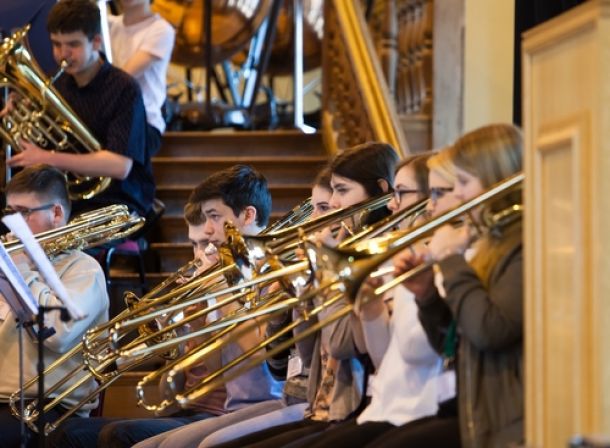About Us
Our Heritage
In the beginning..
The catalyst for the founding of the National Youth Brass Band (NYBB) was a massed band concert in Bradford on 25th October 1947. Three local teachers, Elizabeth Lumb, Arthur Atkinson and Ralph Nellist, brought together their bands with Dr Denis Wright as the Guest Conductor. Another concert in November 1950, again conducted by Dr Denis (as he was known), brought together 100 young people in Leeds and showed the potential and the demand for such events.
The NYBB was established with representatives from all over Britain. Sir Malcolm Sargent became President and Dr Denis (the founder) Chairman. Leonard Davies became Secretary and Harry Mortimer, Herbert Bennett and Dr R Maldwyn Price became Vice-Presidents, representing England, Scotland and Wales.
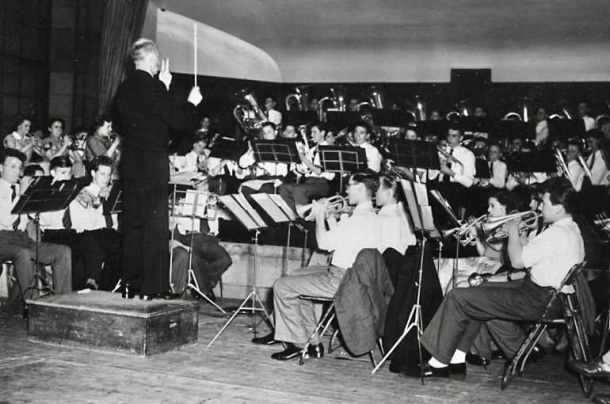
The first course of the NYBB took place at Thornton Grammar School, Bradford, in April 1952. Brass players up to the age of 18 were invited to apply and a band was formed, with 87 boys and four girls. The band was conducted by Dr Denis – as Music Advisor. On the Thursday the BBC recorded items for a children’s programme – the first of many NYBB broadcasts. Maurice Murphy was Leader.
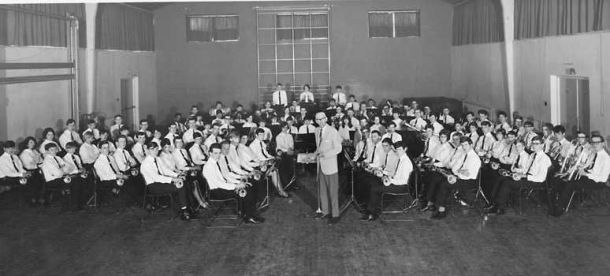
The NYBB’s second course took place in Reading with Harry Mortimer as conductor. Eric Ball directed the third course, and so the brass band world’s Great Triumvirate of the mid-20th century, Wright, Mortimer and Ball, had each contributed to the solid foundation on which the NYBB was built.
Sir Adrian Boult was guest conductor of the 1958 Easter course and the band made its first TV appearance. Auditions were introduced and 173 auditions were held that first year. The 10th anniversary was celebrated in 1962 with a TV programme introduced by the famous jazz trombonist George Chisolm and the second appearance of Sir Adrian.
A new era
At the AGM of 1967 Dr Denis announced his retirement as Music Advisor. His health was failing. His successor was Geoffrey Brand, and the band grew in size with 100 members. Speaking of his time with the band, Geoffrey says:
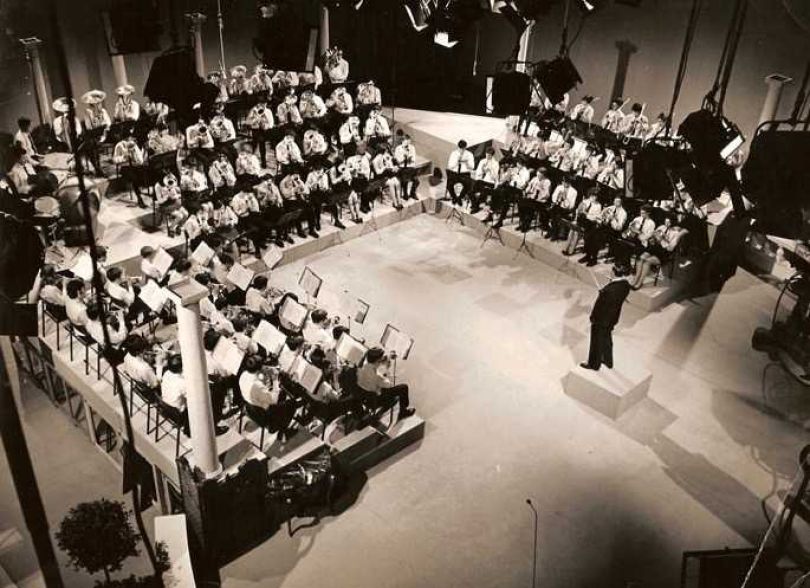
— Geoffrey Brand
1975 saw the appointment of the third Music Adviser, Arthur Butterworth. The huge band of former days slimmed down as county youth bands began to grow and audition requirements became more demanding reflecting the increased technical challenge of new music, though band members enjoyed playing and learning about the more traditional music too. New works were commissioned, one of these by Richard Steinitz, brought about the NYBB’s first appearance at the prestigious Harrogate Festival.
In 1982 the NYBB made its first appearance in the Royal Albert Hall under the baton of Ray Farr, as part of the National Brass Band Championships Gala Concert. The programme was Wagner’s Introduction to Act 3. of Lohengrin and Robert Simpson’s, Energy.
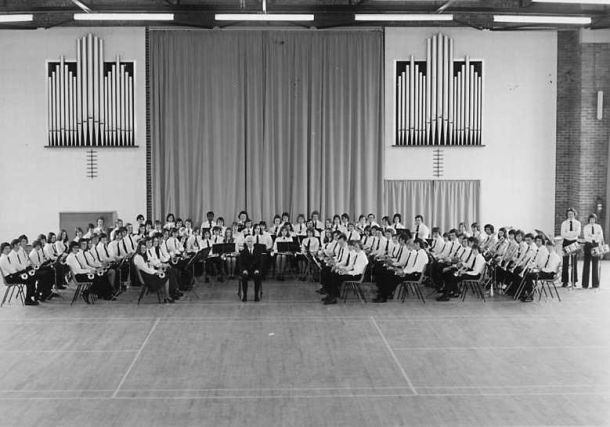
The Newsome era
In 1984 Roy Newsome became ‘Music Director’ of the NYBB. Funding was always a huge problem and the band survived on a shoe-string Staff and even former members worked hard to ensure funding was found and course fees remained affordable with bursaries for those who needed them. Guest conductors were welcomed from both the brass band and orchestral worlds including Sir Charles Groves, Elgar Howarth and Bramwell Tovey. Repertoire was a combination of the modern and the traditional, and the policy of commissioning new works continued. Dancing in the Park, by Peter Graham, was first performed in the Royal Northern College of Music, with the full NYBB and dancers from the Northern Ballet School.
In 1987 the NYBB made a further appearance in the Royal Albert Hall, as guests of the National Youth Orchestra. Four years later the band was in the famous hall in its own right, playing in a Henry Wood Promenade Concert under Sir Charles Groves.
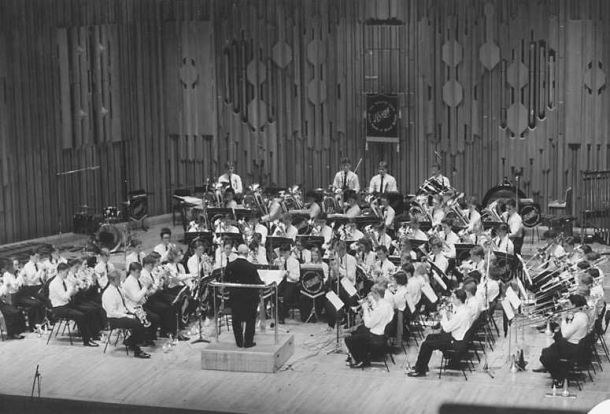
The band’s 40th anniversary was celebrated in 1992 with a concert in The Barbican, London. The band also appeared on television’s ‘Blue Peter’ and released its first CD, ‘40 Years Young’. This featured Maurice Murphy as soloist, and proved to be the last time the band was conducted by its old friend and the second President, Harry Mortimer.
Easter 1996 saw a return to the Barbican, as guests of the London Symphony Orchestra. Members of the orchestra’s brass section visited the course giving masterclasses, and they also performed in the concert. This included a performance of Elgar Howarth’s Fireworks, with Lady Valerie Solti as narrator. In the same year the summer course was held in the USA the band’s only trans-Atlantic course, to date.
By 1999 the size of the band has settled to about 75 – roughly a treble band. The proportion of girls had increased dramatically since the first course. Several of the many romances which developed with the band over the years led to marriage, and we have had children of NYBB alumni as second-generation NYBB members. The year 2000 saw the final course with Roy Newsome as Music Director. The band provided the first half of the gala concert of the European Brass Band Championships in the magnificent Symphony Hall, Birmingham. And also took part in the BBC Proms Millennium Youth Day, held in the Royal Albert Hall with eight other national youth music organisations.
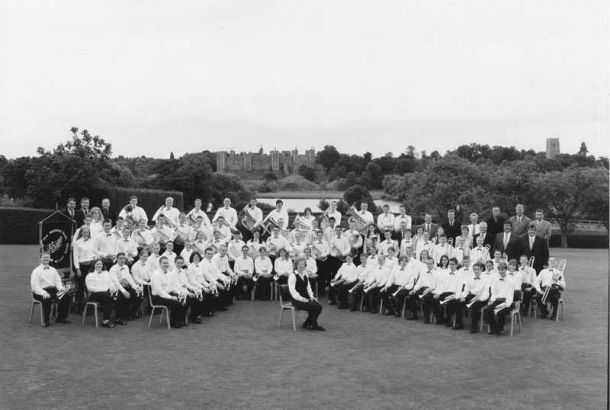
Into the 21st Century
Elgar Howarth was appointed Artistic Director and the band’s 50th anniversary was celebrated in 2002, with a return to Bradford. In 2004 the National Children’s Brass Band of Great Britain was formed – one of the most significant developments in the entire history of the NYBB. Lynda Nicholson was Course Director for the first course and from 2005 to 2021 the Children’s Band was under the musical control of Prof. Nicholas Childs.
Elgar Howarth, who had also become the NYBB’s third President, was succeeded in 2006 as Artistic Director by Bramwell Tovey until his retirement in 2020. A highlight of this period was a return to the Barbican in October 2018 to premiere James MacMillan’s All the Hills and Vales Along, playing alongside the London Symphony Chorus and members of the London Symphony Orchestra.
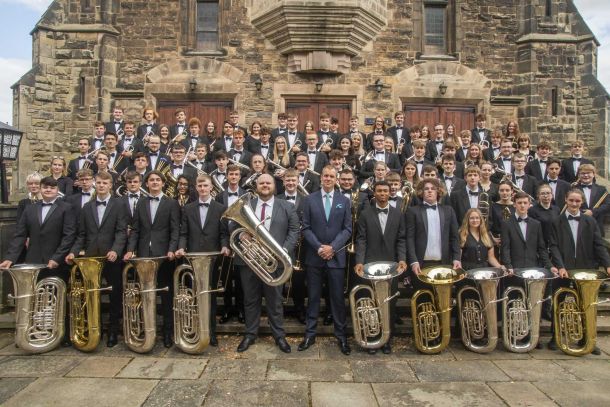
The sudden death of the NYBBGB’s long serving Administrator, Phillip Biggs in September 2019, and the covid-19 pandemic of 2020 presented the band with some problems. A new management team was brought in under CEO Mark Bromley and the Easter 2020 course was cancelled – the first time in the band’s history this had happened. That same year the summer course saw a successful move online to enable the band’s young musicians to keep on playing. Dr Robert Childs was appointed Director of Artistic Planning in December 2020. We’re excited to see what the future brings.
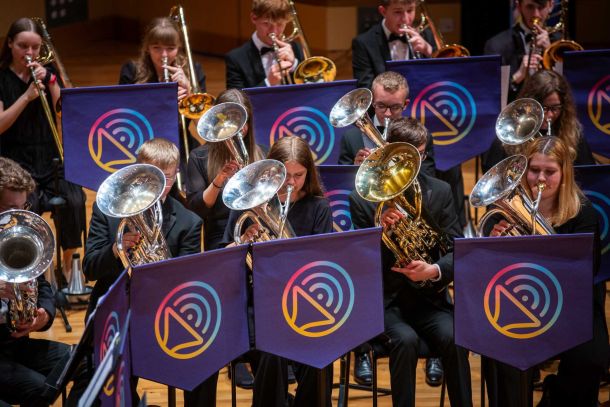
And finally
Many people have contributed to the success story of the National Youth Brass Band of Great Britain. A few have been named in this brief history; all are remembered with gratitude and affection and we encourage all alumni to stay in touch. We are proud to continue the brass band tradition by playing and studying both traditional music and supporting new commissions. We are proud that half the members of an average course are now girls! We remain committed to holding free auditions, keeping course costs low and providing bursaries where they are needed. And we remain committed to providing a truly excellent brass band experience for all of our members.
